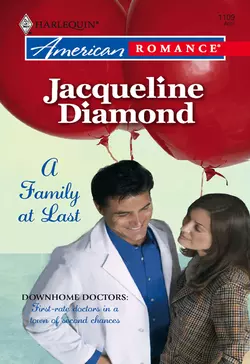A Family at Last

Jacqueline Diamond
Тип: электронная книга
Жанр: Современные любовные романы
Язык: на английском языке
Стоимость: 386.29 ₽
Статус: В продаже
Издательство: HarperCollins
Дата публикации: 16.04.2024
Отзывы: Пока нет Добавить отзыв
О книге: The Wait Might Just Be OverYears after a teenage prank ended badly and a young boy′s testimony put his best friend in jail, Downhome, Tennessee, is still trying to heal the scars of the old scandal. Now the two are back in town–one trying to clear himself of murder, the other of betrayal–and long-buried feelings have been stirred.Karen Lowell is once again caught between the two men, with even more now at stake. Her brother′s ongoing crusade to shift blame away from himself has already poisoned her past, and now it′s tainting her dreams for the future.Because Karen yearns for a life that will include pediatrician Chris McRay, the man who is now–as he was so many years ago–her lover. A life where she and Chris will be a family at last.The choice is hers. Can she make it?